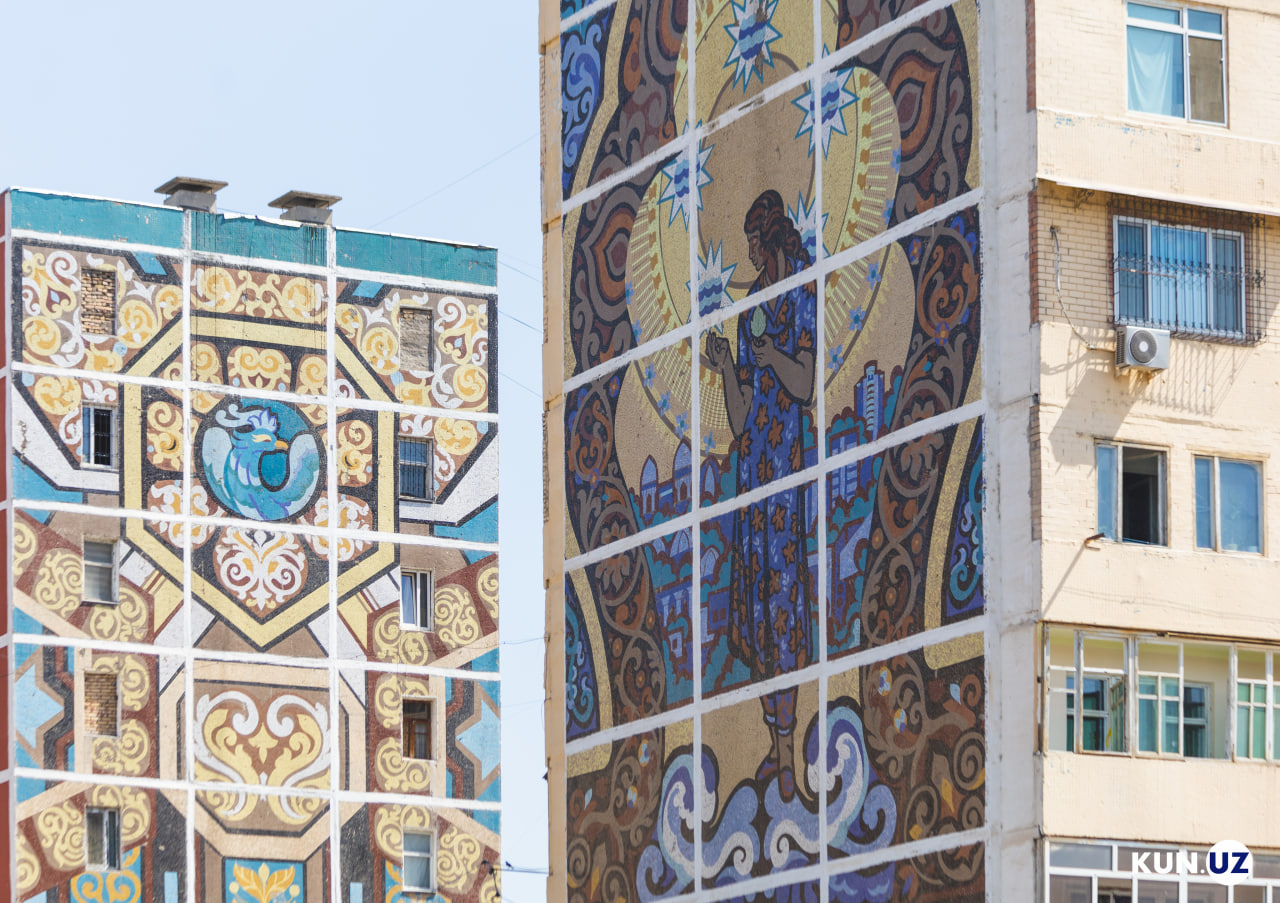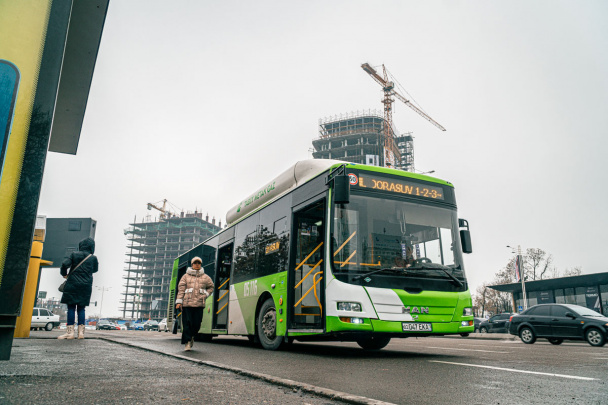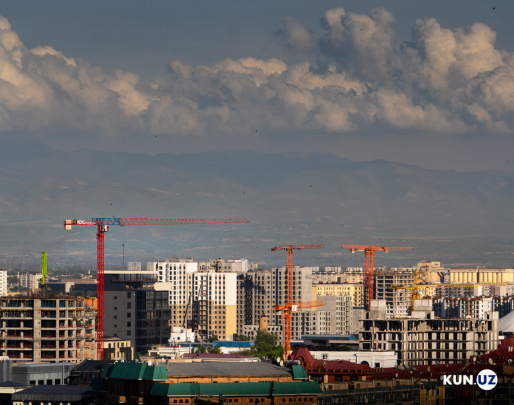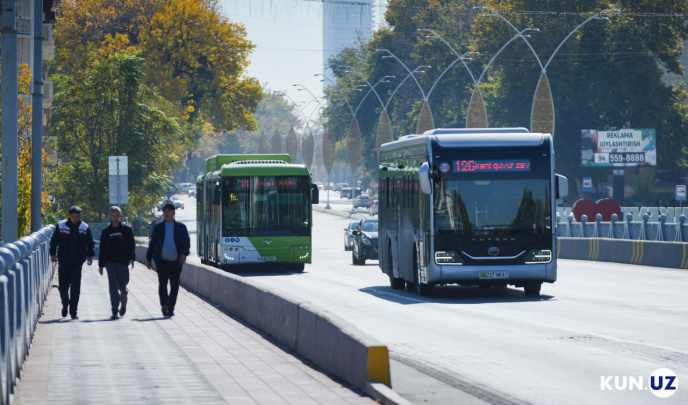Mosaics on buildings in Uzbekistan recognized as cultural heritage sites
On March 25, the Cabinet of Ministers of Uzbekistan issued a resolution by which about 157 mosaic panels in Tashkent and regions of the country were included in the National List of Real Estate Properties of Tangible Cultural Heritage as monuments of monumental art.

Photo: Kun.uz
It was previously reported that in August 2023, the scientific expert council of the Cultural Heritage Agency approved a list of 161 mosaics and panels for inclusion in the national list.
The purpose of replenishing the register in the resolution is the comprehensive study, preservation and competent use of mosaics, panels and works of fine art, as well as increasing their role in the development of the country’s tourism potential.
The mosaics included in the list will be entered into the state cadastre. An entry stating that they have cultural value will be added to the cadastral documents of the objects.
From now on, any activities on buildings, within the boundaries of their security zone and in the adjacent territory must be agreed with the Cultural Heritage Agency.
Most of the mosaics included in the list are from Tashkent. It also contains mosaics from Nukus, Urgench, Khiva, Samarkand, Namangan, Andijan, Jizzakh, Kokand, Angren, Gulistan and several regions.
The public and individual activists have been fighting for the preservation of mosaics on buildings for many years. In Tashkent alone, in recent years, during renovation work, a large number of mosaics on residential buildings have been painted over. Many mosaics on high-rise buildings are covered with huge advertising banners.
In 2022, the indignation of residents stopped the painting of mosaics on several buildings near the capital’s administration. By that time, workers had covered large areas of nine-story buildings with cement and had to clear them manually.
The Chilanzar district administration then stated that the decision to “repair the facades” of the houses was made by the city council of people’s deputies.
In 2018, we also wrote how in Tashkent, after dissatisfaction with residents, a mosaic painted over on one of the residential buildings was restored at the initiative of the local homeowners' association.
Last September, as part of the demolition of the newspaper workshop building in the center of Tashkent, a mosaic panel by Arnold Hahn was dismantled for installation in a new location. The campaign for its preservation was led by the founder of the Tashkent Modernism project, Alexander Fedorov. The Foundation for the Development of Culture and Art of Uzbekistan announced an open competition to determine a new location for the mosaic.
In 2020, Gazeta.uz published an article by guide Aziz Kholmurodov about the toponymy of Tashkent, which, in particular, talks about the unique mosaic panels of the capital, including those that have not survived.
Related News

15:28 / 04.03.2026
Tashkent to clear bus stops of commercial units for urban infrastructure upgrade

13:16 / 04.03.2026
Tashkent’s master plan revised as city targets $14.5 billion in new development projects

12:24 / 27.02.2026
Saida Mirziyoyeva announces start of transport system modernization in Tashkent

17:02 / 26.02.2026



